Related Research Articles

Leninism is a political ideology developed by Russian Marxist revolutionary Vladimir Lenin that proposes the establishment of the dictatorship of the proletariat led by a revolutionary vanguard party as the political prelude to the establishment of communism. Lenin's ideological contributions to the Marxist ideology relate to his theories on the party, imperialism, the state, and revolution. The function of the Leninist vanguard party is to provide the working classes with the political consciousness and revolutionary leadership necessary to depose capitalism.
Bolshevism is a revolutionary socialist current of Soviet Leninist and later Marxist–Leninist political thought and political regime associated with the formation of a rigidly centralized, cohesive and disciplined party of social revolution, focused on overthrowing the existing capitalist state system, seizing power and establishing the "dictatorship of the proletariat".
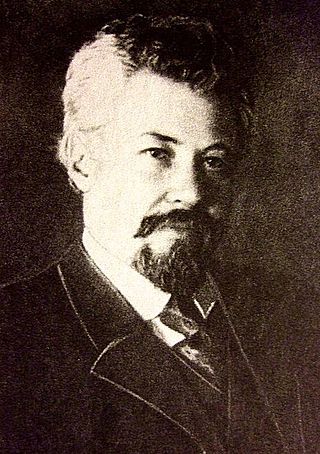
Elections to the Russian Constituent Assembly were held on 25 November 1917, although some districts had polling on alternate days, around two months after they were originally meant to occur, having been organized as a result of events in the February Revolution. They are generally recognised to be the first free elections in Russian history. The dissolution of the Constituent Assembly was also approved by the Left Socialist Revolutionaries and anarchists; both groups were in favour of a more extensive democracy.

The Provisional Siberian Government, was an ephemeral government for Siberia created by the White movement.

Mark Andreyevich Natanson was a Russian revolutionary who was one of the founders of the Circle of Tchaikovsky, Land and Liberty and the Socialist-Revolutionary Party. In 1917, he was a leader of the Left Socialist-Revolutionaries, which supported the Bolsheviks during the October Revolution. He was the uncle of Alexander Berkman.
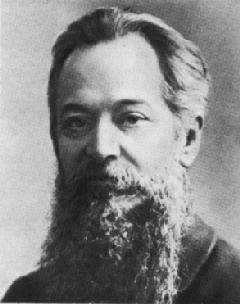
Nikolai Frantsevich Danielson was a Russian socio-political figure, economist, publicist, and one of the theoreticians of liberal populism. He is also famous for his translations of Das Kapital by Marx, and being a writer on Russian economic development.

Nikolay Sergeyevich Rusanov, also known under the pseudonyms of K. Tarasov and N. Kudrin, was a Russian revolutionary who connected the revolutionary populist movement of the 1870s with the revolutionary parties of the early twentieth century, particularly the Russian Socialist-Revolutionary Party (PSR).

Andrei Aleksandrovich Argunov was a Russian revolutionary political activist and one of the leaders of the Socialist-Revolutionary Party.

Nikolai Dimitrovich Avksentyev was a leading member of the Socialist-Revolutionary Party (PSR). He was one of the 'Heidelberg SRs', like Vladimir Zenzinov. These SRs were influenced by neo-Kantian philosophy and Marxism. As Chairman of the Provisional All-Russian Government, he headed the Russian state from September 23 to November 18, 1918. He was overthrown and arrested by the Minister of War, Alexander Kolchak, who proclaimed himself the Supreme Ruler of Russia.

Abram Rafailovich Gots was a Russian Socialist-Revolutionary leader, active in the Revolutions of 1905 and 1917.

The Popular Socialist Party emerged in Russia in the early twentieth century.
Internationalist and defencist were the broad opposing camps in the international socialist movement during and shortly after the First World War. Prior to 1914, anti-militarism had been a key principle among most European socialist parties. Leaders of the Second International had even suggested that socialist workers might foil a declaration of war by means of a general strike.

Osip Solomonovich Minor was a Russian revolutionary and member of the Socialist-Revolutionary Party.
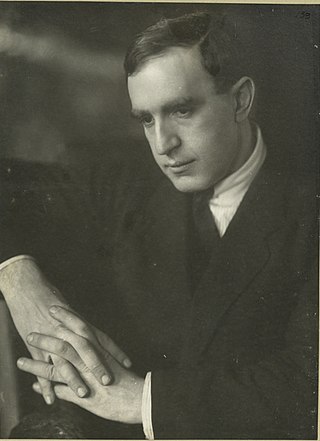
Boris Davidovich Kamkov was a Russian revolutionary, a leader of the Left Socialist-Revolutionaries, and a member of the Council of People's Commissars. He was killed during the Great Purge.
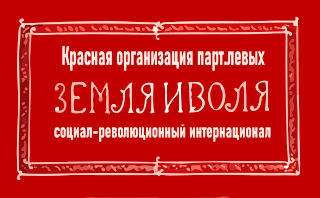
The Party of Left Socialist-Revolutionaries-Internationalists was a revolutionary socialist political party formed during the Russian Revolution.
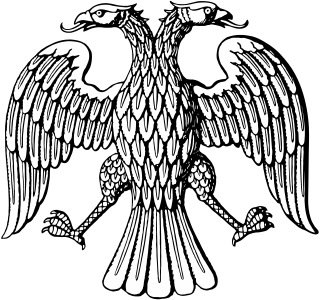
The All Russian Constituent Assembly was a constituent assembly convened in Russia after the February Revolution of 1917. It met for 13 hours, from 4 p.m. to 5 a.m., 18–19 January [O.S. 5–6 January] 1918, whereupon it was dissolved by the Bolshevik-led All-Russian Central Executive Committee, proclaiming the Third All-Russian Congress of Soviets the new governing body of Russia.

The Socialist Revolutionary Party, was a major political party in late Imperial Russia, during both phases of the Russian Revolution, and in early Soviet Russia.
In Marxist philosophy, the dictatorship of the proletariat is a condition in which the proletariat, or working class, holds control over state power. The dictatorship of the proletariat is the transitional phase from a capitalist to a communist economy, whereby the post-revolutionary state seizes the means of production, mandates the implementation of direct elections on behalf of and within the confines of the ruling proletarian state party, and institutes elected delegates into representative workers' councils that nationalise ownership of the means of production from private to collective ownership. During this phase, the organizational structure of the party is to be largely determined by the need for it to govern firmly and wield state power to prevent counterrevolution, and to facilitate the transition to a lasting communist society.
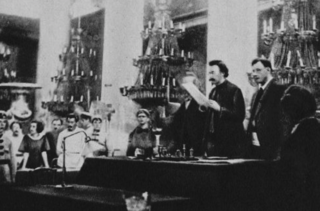
The Trial of the Socialist Revolutionaries was an internationally publicized political trial in Soviet Russia, which brought twelve prominent members of the anti-Bolshevik Party of Socialist Revolutionaries (PSR) before the bar. The trial, which took place in Moscow from June 8 to August 7, 1922, was ordered by Vladimir Lenin and is regarded as a precursor to the later show trials during the regime of Joseph Stalin.
An index of articles related to the Russian Revolution and the Russian Civil War period (1905–1922). It covers articles on topics, events, and persons related to the revolutionary era, from the 1905 Russian Revolution until the end of the Russian Civil War. The See also section includes other lists related to Revolutionary Russia and the Soviet Union, including an index of articles about the Soviet Union (1922–1991) which is the next article in this series, and Bibliography of the Russian Revolution and Civil War.
References
- ↑ Glossary of Organisations: Ma
- ↑ J.V. Stalin's role in the early Bolshevik party included 'expopriations' modelled on the Maximalists' methods. Lenin, in 1905, began to argue for a 'democratic dictatorship of the proletariat and the peasantry', represented by the Bolsheviks and the left wing of the PSR and the SR Maximalists, respectively. By contrast, the Mensheviks were then pursuing an alliance with the liberal bourgeoisie.
- ↑ The Last Maximalist: A Radiocast of Klara Klebanova's Memoir, Translated and Voiced by Caraid O' Brien